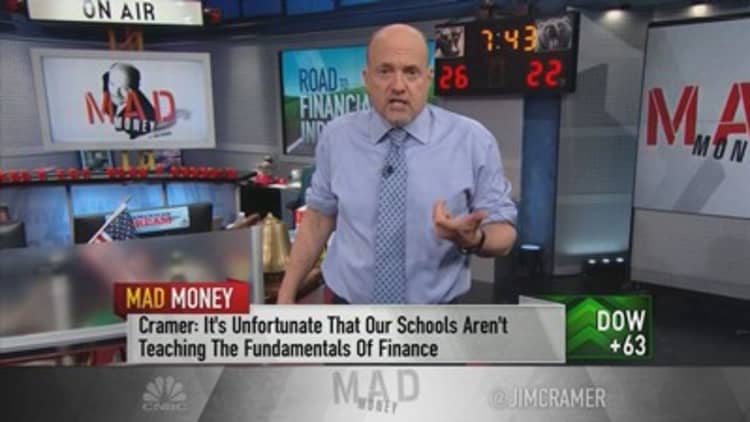
When Lauryn Luther earns money she is careful to set aside 15 percent in a rainy day fund right from the start. She also saves another 15 percent in an interest-bearing account for big expenses down the road, like college or a car. She then commits 30 percent to charity and spends the last 40 percent mostly how she sees fit – whether that's on toys, a book or her favorite candy.
She's a 10-year-old.
Lauryn is one of a growing number of children who have learned about money by enrolling in a summer camp focused on financial education.
Lauryn's mom, Laura Luther, said her daughter excelled in all types of math, but the financial education component was missing from her school's curriculum. So they turned to a summer session at Moolah U, an Austin, Texas-based finance program for children aged 8 to 15.
"It's really helped her at a whole different level," she said.
Gayle Reaume, founder and CEO of Moolah U, said she started the sessions in 2005 to answer kids' questions about how value is determined and created. She also recognized that there could be long-term benefits. "All of these people are spending more than they make. What if you knew that at 10 or 12?" she said.
From its start, the one-week camp, which costs $300, has expanded year after year and "then tripled during the crash," Reaume said.
Forget color wars
"Parents are looking at summer options that they consider more substantive," said Ann Travis, a camp consultant also known as The Summer Lady. "They want their kids to spend their time wisely."
For children that might otherwise be playing capture the flag, programs on business, finance and science, technology, engineering and math can be fun, particularly if it's the child's specific interest, Travis said. They also often include field trips, team building and evening activities. "It's not torture."
Personal finance camps, like Moolah U, Camp Millionaire or Money Munchkids to name a few, are becoming increasingly popular, according to Jill Tipograph, founder and CEO of Everything Summer, a summer programs consulting firm.
However, "it's not the traditional day camp route that I think kids benefit from," Tipograph added. "I do think teaching children early financial planning is good," she said, but "being outdoors is important."
"Doing a camp like this coupled with a program that's outdoors, where kids swim and are exposed to a broad range of activities, is fine," Tipograph said.
Parents are looking at summer options that they consider more substantive.Ann Traviscamp consultant also known as The Summer Lady
About 1 in 5 U.S. students don't meet baseline levels for financial literacy proficiency, according to the PISA 2015 Financial Literacy assessment. Only 10 percent are considered "top performers" capable of analyzing complex financial products and problems.
"If we want our kids to avoid the mistakes we made, we need to teach them some basic guidelines, because they aren't going to learn them in school," said Kimberly Foss, a certified financial planner and founder and president of Empyrion Wealth Management. "Kids as young as 3 can grasp basic concepts, like spending and saving."
But with our without finance camp, the best way for parents to start is with a savings jar, Foss said. That helps kids learn good financial habits and how to save.
Financial literacy experts agree that hands-on money management experience is key for financial literacy.


